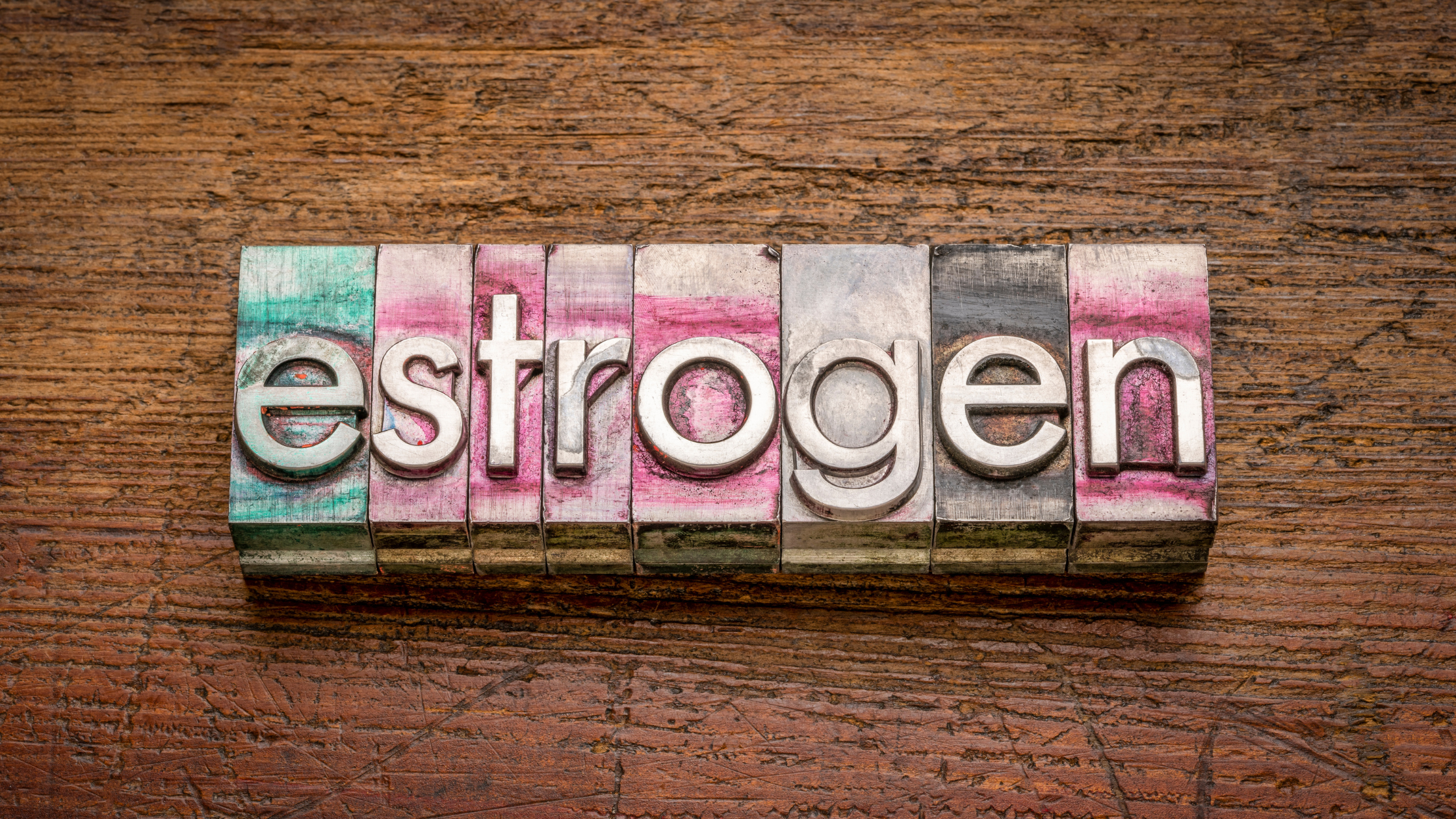Estrogen. Gosh, it’s so confusing!
The recommendations regarding whether or not women should replace estrogen at menopause have changed over the years. Below is a breakdown of what we know and what we’ve been told.
ESTROGEN IS GOOD FOR YOU.
The consensus of thought from 1889 until 2002 (that’s 113 years, my friend) was that estrogen was good for you. Estrogen was first reported in the Merck Manual in 1889 as an option to provide relief of menopausal symptoms.
The prevailing thought, when I began my medical training back in the late 90s, was that estrogen was relatively good for you. It just flat out made women feel better, and so around the time of menopause, many women chose to take hormone therapy. It was an easy decision. There is still no controversy around whether or not estrogen helps relieve vasomotor symptoms. Hot flashes and night sweats occur with the loss of estrogen and are improved by replacing it. This is a fact that everyone agrees on.
NO, WAIT. ESTROGEN IS BAD FOR YOU.
Then, in 2002, everything changed. A large randomized placebo-controlled trial called the WHI (Women’s Health Initiative) was stopped early because of concerns uncovered in women on Prempro (combined synthetic estrogen and synthetic progestin).
I remember when this happened very vividly. I was a resident and the phones in our family practice clinic were ringing off the hooks. We stopped everyone on hormone replacement therapy. No new women were started on therapy. Women were scared. Doctors were scared. The panacea of hormones that made women feel better and helped to ease them through the menopausal transition was abruptly removed with nothing to offer them in return. A lot of women felt awful but were told to just deal with it.
Here’s what the data of the study that changed everything showed: The study looked at women of an average age of 63 and had them on synthetic oral hormones. FYI–I recommend hormones a lot but never synthetic hormones and never oral estrogen. But back to the study. What they found was that for every 10,000 hormone-using women vs. non-hormone-using women, there were:
- 7 more heart attacks
- 18 more blood clots
- 8 more strokes
- 8 more cases of breast cancer
- 6 fewer cases of colon cancer
- 6 fewer hip fractures
Even though these statistics sound scary, remember that 97.5% of women had no adverse events at all but the study was stopped early because of the above increases.¹
NO WAIT, ESTROGEN IS GOOD FOR YOU.
Just 1 year later in 2003, addendums to the study started coming out lessening the risks. In 2006, there was an update from the WHI saying they found NO increased risk of breast cancer. None of this was front page news, so the general message of hormones are bad for you prevailed and it still prevails as consensus amongst many traditionally trained physicians. In addition to the re-analysis of the WHI, some new studies also came out that helped to clear things up. The Esther study published in 2007 showed that it’s oral, not transdermal estrogen, that is associated with blood clots. So as long as estrogen is replaced topically instead of orally, that blood clot risk is negated. ²
The Epic study was a study of 55,000 women. It showed that the association between hormone replacement use and breast cancer risk varies based on the type of progestin used. There is little to no increased risk of breast cancer with estrogens used alone or when estrogen is combined with progesterone (not progestin). ³ Another study of 83,000 women showed no increased risk of breast cancer if transdermal estrogen was used with oral bioidentical progesterone. ⁴
HERE’S WHAT I KNOW TO BE TRUE AND WHY I’LL REPLACE MY OWN ESTROGEN.
If sex hormones are in balance, we are healthy. Hormonal balance is one critical piece in the symphony of health. Some of the other pieces are:
- Diet
- Exercise
- Stress management
- Sleep
- Breathing
- Mitochondrial health
- Gut health
- Supplementation
The more pieces of the puzzle you put into place, the better the outcome. Women lose estrogen around the time of menopause, which occurs between ages 45-55 with the average age of menopause being age 51. Whether or not you replace yours as you lose it, is a personal decision. I am choosing to replace mine.
HERE’S WHAT I KNOW NOW AND WHY:
- Estrogen is good for the heart. Prior to menopause, women have a lower risk of heart disease than men of the same age but after menopause (when they lose estrogen) they start having an increased risk of heart disease. Replacing hormones decreases the risk of heart disease.
- Estrogen is good for the brain. It preserves memory and decreases the risk of Alzheimer’s disease.
- Estrogen, if replaced correctly, is anti-inflammatory. Inflammation is one of the main drivers of many diseases. With menopause, inflammation goes up as estrogen goes down. Replacing estrogen topically decreases this inflammatory increase thereby improving overall health.
- Estrogen improves energy production and metabolism.
- All-cause mortality (death from any cause) is significantly reduced in hormone users vs. non-hormone users.
- Estrogen helps keep bones strong and decreases the risk of fractures.
- Estrogen replacement makes you look and feel younger by enhancing collagen production and decreasing wrinkles.
- Estrogen replacement therapy decreases the risk of colon cancer.
- Estrogen lowers blood pressure, lowers bad cholesterol, and improves good cholesterol.
- Estrogen relieves hot flashes, and night sweats and helps improve sleep.
MINIMIZE THE RISKS BY:
- Starting hormone therapy at the start of menopause (the sooner the better).
- Use topical, not oral estrogen.
- If you still have a uterus, you need to take progesterone. Use natural progesterone, not synthetic progestin.
- Monitor your hormone levels with salivary testing. The goal is to be in the normal range.
I would never try to talk someone into taking hormones who doesn’t feel comfortable. It’s a personal decision. However, I feel very comfortable with the treatment for me and my patients who see the benefits. I asked one of my mentors how long you should replace hormones in women. She replied, “As long as they want to feel good.” I want to feel good forever so I’ll be replacing mine until the day I die.
References
- Rossouw, J, et al. Risks and Benefits of Estrogen Plus Progestin in Healthy Postmenopausal Women. Principal Results From the Women’s Health Initiative Randomized Controlled Trial. JAMA. 2002;288(3):321-333.
- Canonico M, et al.Hormone therapy and venous thromboembolism among postmenopausal women: impact of the route of estrogen administration and progestogens: the ESTHER study. Circulation. 2007 Feb 20;115(7):840-5.
- Fournier A, Berrino F, Riboli E, Avenel V, Clavel-Chapelon F. Breast cancer risk in relation to different types of hormone replacement therapy in the E3N-EPIC cohort. Int J Cancer. 2005 Apr 10;114(3):448-54.
- Fournier A, Berrino F, Clavel-Chapelon F. Unequal risks for breast cancer associated with different hormone replacement therapies: results from the E3N cohort study. Breast Cancer Res Treat. 2008 Jan;107(1):103-11. doi: 10.1007/s10549-007-9523-x. Epub 2007 Feb 27. Erratum in: Breast Cancer Res Treat. 2008 Jan;107(2):307-8.




